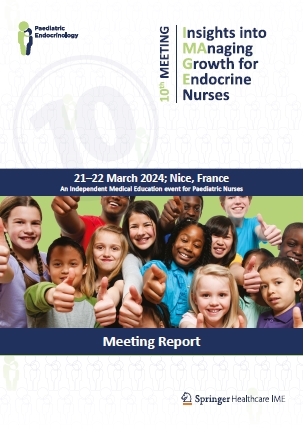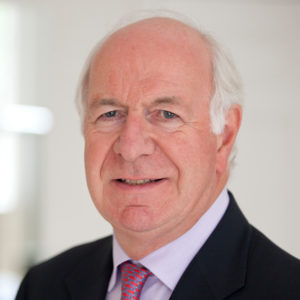This meeting will take place 21–22 March 2024, Nice, France
WELCOME TO IMAGE MARCH 2024 MEETING
Dear Delegate,
Bienvenue à Nice!
The Insights into MAnaging Growth for Endocrine nurses (IMAGE) March 2024 Meeting, organised by Springer Healthcare IME, provides high-quality, practical clinical training for nurses involved in paediatric endocrinology practice.
This year’s symposium will be the 10th IMAGE meeting. Building on the success of the past decade, this conference will focus on the needs of paediatric endocrine nurses involved in the care and management of children with adrenal or pituitary disorders and the use of long-acting growth hormone therapy. There will be plenary lectures and case studies, followed by plenty of time for discussion, with an emphasis on informality, discussion, and exchange of views between delegates and faculty. The IMAGE March 2024 Meeting offers an important opportunity for nurses to be updated on new developments in the field and to share experiences with nurses and doctors working in different parts of the world.
We are delighted to welcome you all here today.
We hope that you enjoy this symposium.
Kate Davies

Chair
Meeting content
The meeting took place on the 21st and 22nd March 2024 in Nice, France. Watch our panel of experts provide an overview of the importance of the IMAGE meeting for paediatric endocrine nurses.
Programme director, Martin Savage, discusses 10 years of IMAGE meetings and the role of the paediatric endocrine nurse globally.
Faculty member and endocrinologist, Stephen Shalet, talks through the day 1 IMAGE 2024 sessions on adrenal gland function, disorders and management of both life-threatening and quality of life symptoms.
Faculty member and paediatric endocrine nurse, Lee Martin, shares his growth hormone highlights from the Day 1 sessions at IMAGE 2024 and the benefits of discussing best practices with faculty and delegates from around the world.
Kate Davies, meeting Co-Chair, outlines her highlights from the Day 2 sessions on the pituitary gland at IMAGE 2024 and the value of meeting with an international group of paediatric endocrine nurses.
Meeting presentation slides
Session 1: Adrenal disorders
The function of the adrenal glands. Li Chan (London, UK)
Disorders of excessive adrenal function; tumours and Cushing’s syndrome. Martin Savage (London, UK)
Rare disorders of deficient adrenal function. Li Chan (London, UK)
Congenital adrenal hyperplasia. Kate Davies (London, UK)
Adrenal Hypofunction case study. Karen Thompson (Belfast, UK)
Adrenal Hyperfunction case study. Lee Martin (London, UK)
Sick day management. Brenda Fraser (Ottawa, Canada)
Session 2: Growth and Growth Hormone
Investigation of short stature using clinical endocrinological and genetic approaches. Martin Savage (London, UK)
Innovations in nursing care: addressing challenges in growth hormone management. Camilla Ernstsson (Umeå, Sweden)
The individual patient’s growth hormone journey: from referral to therapeutic outcome. Lee Martin (London, UK)
Keynote Lecture: Overview of growth hormone treatment – how far have we come? With discussion. Stephen Shalet (Manchester, UK)
Session 3: Pituitary disorders
Pituitary disorders in paediatrics: causes and effects. Martin Savage (London, UK)
Pituitary hormone replacement therapy. Stephen Shalet (Manchester, UK)
Pituitary case study. Camilla Ernstsson (Umeå, Sweden)
Pituitary case study on transition. Brenda Fraser (Ottawa, Canada)
EDUCATIONAL GRANT
This independent programme is made possible thanks to an educational grant received from Merck KGaA, Darmstadt, Germany.
ORGANISERS
This educational activity has been planned and independently implemented by Springer Healthcare IME. Springer Healthcare IME is the independent medical education group of Springer Healthcare, part of the Springer Nature publishing group.
Springer Healthcare Ltd – Independent Medical Education
Head of Operations: James Hutton
T +44 (0)20 3192 2272
[email protected]m
LOGISTIC PROVIDER
Med.E.A- Medical Education Academy
Phone: +39 02 8295 8658
Email: [email protected]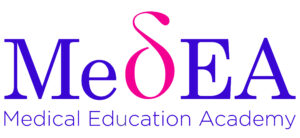
CONTINUING MEDICAL EDUCATION
This continuing education activity has been approved by the International Council of Nurses (ICN) for the award of 7.75 International Continuing Nursing Education Credits (ICNECs).
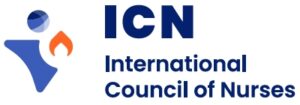
PROGRAMME
WEDNESDAY 20 MARCH
19:30–22:30 – Welcome dinner
THURSDAY 21 MARCH
Welcome and introduction
09:00–09:15 – Kate Davies
Session 1: Adrenal disorders
Chairs: Stephen Shalet and Kate Davies
09:15–09:35 – The function of the adrenal glands
Li Chan (London, UK)
09:35–10:05 – Disorders of excessive adrenal function; tumours and Cushing’s syndrome.
Martin Savage (London, UK)
10:05–10:20 – General discussion
10:20–10:40 – MORNING COFFEE BREAK
10:40–11:10 – Rare disorders of deficient adrenal function.
Li Chan (London, UK)
11:10–11:30 – Congenital adrenal hyperplasia.
Kate Davies (London, UK)
11:30–11:45 – Adrenal Hypofunction case study.
Karen Thompson (Belfast, UK)
11:45–12:00 – Adrenal Hyperfunction case study.
Lee Martin (London, UK)
12:00–12:30 – Sick day management
Brenda Fraser (Ottawa, Canada)
12:30–13:30 – LUNCH BREAK
Session 2: Growth and Growth Hormone
Chairs: Lee Martin and Li Chan
13:30–14:00 – Investigation of short stature using clinical endocrinological and genetic approaches
Martin Savage (London, UK)
14:00–14:30 – Innovations in nursing care: addressing challenges in growth hormone management
Camilla Ernstsson (Umeå, Sweden)
14:30–14:45 – General discussion
14:45–15:05 – The individual patient’s growth hormone journey: from referral to therapeutic outcome
Lee Martin (London, UK)
15:05–15:25 – AFTERNOON COFFEE BREAK
15:25–16:05 – Keynote Lecture: Overview of growth hormone treatment – how far have we come? With discussion.
Stephen Shalet (Manchester, UK)
Summary of Day 1
16:05–16:20 – Summary and close
Martin Savage and Kate Davies (London UK)
FRIDAY 22 MARCH
Session 3: Pituitary disorders
Chairs: Kate Davies and Brenda Fraser
09:00–09:30 – Pituitary disorders in paediatrics: causes and effects.
Martin Savage (London, UK)
09:30–10:00 – Pituitary hormone replacement therapy.
Stephen Shalet (Manchester, UK)
10:00–10:30 – Panel discussion
10:30–10:45 – MORNING COFFEE BREAK
10:45–11:05 – Pituitary case study.
Camilla Ernstsson (Umeå, Sweden)
11:05–11:25 – Pituitary case study on transition
Brenda Fraser (Ottawa, Canada)
Closing remarks Day 2
11:25–11:40 – Summary and close.
Martin Savage (London, UK)
11:40–12:00 – Feedback and evaluation.
12:00–13:00 – LUNCH
VENUE AND LOCATION
CONFERENCE VENUE
The meeting and delegate accommodation are at the WESTMINSTER HOTEL & SPA, NICE, http://www.westminster-nice.com/en/
The hotel address is 27 PROMENADE DES ANGLAIS, 06000 NICE, FRANCE
The plenary room is called Salon President and is located on the Ground floor of the Westminster
Hotel & Spa.
INFORMATION FOR DELEGATES
REGISTRATION
The registration desk is located outside of the Salon President room on the Ground floor.
The hospitality desk is located in the lobby of the Westminster Hotel & Spa on the ground floor.
Registration will be open from 8am to 5pm on Thursday 21 March.
WELCOME DINNER
The welcome dinner will take place on Wednesday 20 March from 19:30 to 22.30 at the Halles Aux Fresque located on the ground floor of the Westminster Hotel & Spa.
CONFERENCE DINNER
The conference dinner will take place on Thursday 21 March at 20.00 at the Restaurant Le Bistrot Gourmand (Walking distance – 3 Rue Desboutin, 06300 Nice, France).
Delegates are asked to gather in the hotel lobby at 19.30.
LUNCHES
Lunch will be served at the Halles Aux Fresque located on the ground floor of the Westminster Hotel & Spa.
LUGGAGE
Check-out time is 10.00. Delegates have the option of storing luggage at the reception following check-out. Please ask the front desk of the hotel to make arrangements.
FOR ANY LOGISTICS INQUIRIES ONSITE, PLEASE CONTACT:
Marta Pani (mobile phone: +39 3519336191; email: [email protected])
CNE CERTIFICATE
This continuing education activity has been approved by ICN for the award of 7.75 ICNECs. Delegates will receive certificates by email after the meeting.
ORGANISING COMMITTEE
KATE DAVIES
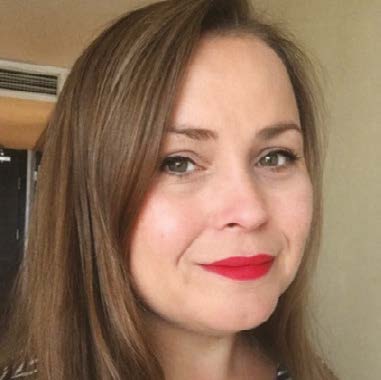
Senior Lecturer in Children’s Nursing, London South Bank University, London, UK
Kate Davies has been a children’s nurse since 1994, working in general paediatrics, paediatric ICU and neuroscience before specialising in paediatric endocrinology in 2000. She has focused on advancing her education by studying for a BSc (Hons) in Psychology, an MSc in Occupational Psychology and an MSc in Professional Healthcare Research, as well as advancing clinical skills including Non-Medical Prescribing. She is also a qualified Children’s Advanced Nurse Practitioner and a Nurse Teacher.
Kate is well known internationally within paediatric endocrinology, having presented and published widely. She has sub-specialised in growth and puberty, neuro-endocrine late effects of childhood brain tumours, adrenal disorders and differences of sex development. Kate commenced her PhD in Nursing in 2021, focusing on monitoring in young people with congenital adrenal hyperplasia.
Kate is passionate about educating staff and students, and started at London South Bank Universit, as a Senior Lecturer in Children’s Nursing in September 2015. She launched the new BSc/MSc module ‘Principles of care for the child and young person in endocrinology’ in January 2017, and has run four successful intakes, with a 100% pass rate each time and another currently underway. She leads the UK’s only paediatric Non-Medical Prescribing programme, and is Associate Professor in Paediatric Prescribing and Endocrinology.
MARTIN SAVAGE
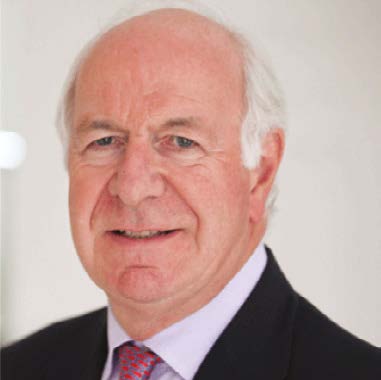
Emeritus Professor of Paediatric Endocrinology at William Harvey Research Institute, Barts and the London School of Medicine & Dentistry, London, UK
Martin Savage is Emeritus Professor of Paediatric Endocrinology at William Harvey Research Institute, Barts and The London School of Medicine and Dentistry, Queen Mary University of London. He was head of the Paediatric Endocrine Unit at Barts and the London School of Medicine from 1982 to 2007. He has interests in growth disorders, specifically those with abnormalities in the growth hormone (GH)-IGF-1 axis and in phenotype-genotype relationships of GH-IGF-1 axis defects, notably GH resistance. He published the first human case of an IGF-1 gene defect in The New England Journal of Medicine in 1996. His other interests are Cushing’s syndrome and growth in chronic inflammatory diseases. He was General Secretary of the European Society for Paediatric Endocrinology (ESPE) from 1997 to 2004. He has lectured in 61 countries and has published 472 original articles, reviews, textbook chapters and books. In 2007, he was awarded the ESPE Andrea Prader Prize for contributions to paediatric endocrinology and in 2018 he received a Visionary Award from the American Human Growth Foundation. In 2022, he received a Research Excellence Award from the Dr Sulaiman Al Habib Medical Journal in Riyadh, and the British Society of Paediatric Endocrinology & Diabetes James M. Tanner Lifetime Achievement Award. He continues to lecture nationally and internationally.
SPEAKER BIOGRAPHIES
STEPHEN SHALET
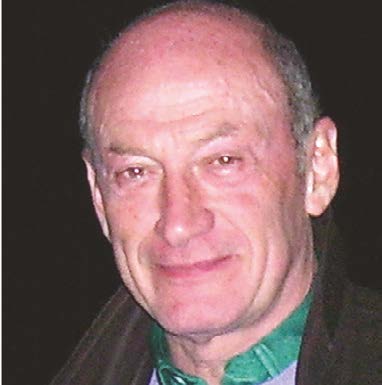
Honorary Consultant Endocrinologist at the Christie Hospital, Manchester and
Emeritus Professor of Endocrinology at the University of Manchester, UK
Stephen Shalet has extensive research interests in the late endocrine effects following treatment of cancer, pituitary disorders and in particular abnormalities of growth hormone secretion. He is the author/co-author of over 500 articles and more than 200 of these are related to clinical disorders of the GH-IGF-1 axis and/or therapeutic use of GH therapy.
Previous positions include Chairman of the Strategic Planning Committee of the European Society of Pediatric Endocrinology, Co-Editor of the first edition of the Oxford Textbook of Endocrinology and a member of the Council of the Society for Endocrinology and the specialist advisory committee in Endocrinology and Diabetes. Professor Shalet has served as President of the Endocrine Section of the Royal Society of Medicine, as a member of the Council of the ESPE, was Chairman of the Specialist Training Committee in Diabetes and Endocrinology for the North West Region and as a member of the Clinical Practice Committee of the Society for Endocrinology.
LEE MARTIN
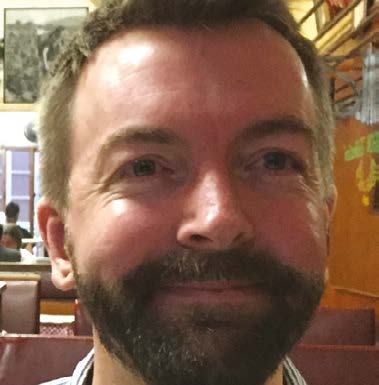
Clinical Nurse Specialist, The Royal London Hospital, London, UK
Lee Martin qualified with a degree in nursing at Monash University, Melbourne, Australia in 1995 and subsequently completed his Postgraduate Diploma in Children’s Nursing at London’s City University in 2001. He has been with the department of paediatric endocrinology at The Royal London Hospital since 2004 and during this time completed Master level courses in both Paediatric Endocrinology and Non-Medical Prescribing. In 2020 Lee completed his Postgraduate Diploma in Advanced Nurse Practice.
Lee Martin runs a nurse-led clinic for children on GH treatment, as well as those affected by thyroid disorders. He also plays a pivotal role in the department’s transition service, for those young people requiring adult care. With the department a national and international referral centre for children with Cushing’s syndrome, Lee is heavily involved in caring for children affected by this condition. Lee is an active member of the national paediatric endocrine nursing community and until 2022 was the chair of the British Society of Paediatric Endocrinology nurse group.
LI CHAN
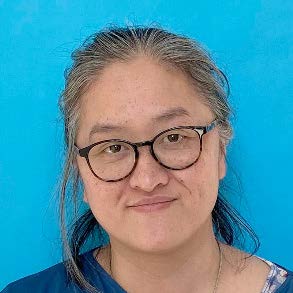
Professor of Molecular Endocrinology and Metabolism/Honorary Consultant in
Paediatric Endocrinology, UK
Li Chan runs a laboratory studying molecular mechanisms and clinical phenotypes of rare disorders of adrenal insufficiency. She is a consultant Paediatric Endocrinologist at Barts Health NHS Trust and runs an adrenal clinic at the Royal London Children’s Hospital. Over the past 5 years she has been the adrenal faculty lead on the US Endocrine Society’s Paediatric ESAP training programme and until recently was co-lead of Genomics England GeCip in Endocrinology and Metabolism.
CAMILLA ERNSTSSON
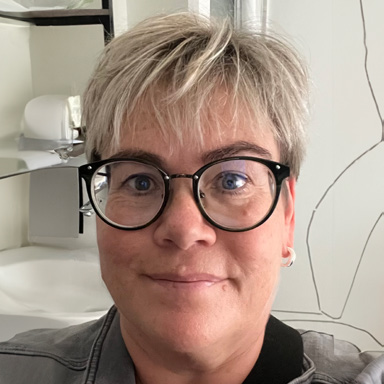
Paediatric endocrine nurse, University Hospital of Umeå, Sweden
Camilla Ernstsson is a paediatric endocrine nurse with 12 years’ experience. Before that over 15 years’ experience in paediatric oncology. She is Chair of the ESPE nurse working group and has a coordinating role in the Swedish paediatric nurse network.
BRENDA FRASER
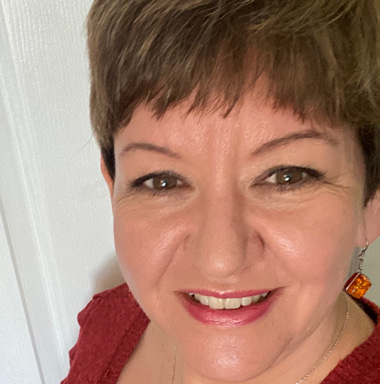
Paediatric endocrine nurse case manager, The Children’s Hospital of Eastern
Ontario, Ottawa, Canada
Brenda Fraser started her nursing career in 1989 at the Hospital for Sick Children in Toronto, Ontario, Canada. Brenda has been at the Children’s Hospital of Eastern Ontario in Ottawa for 29 years and held roles in the NeuroOncology service, Emergency department before joining the Division of Endocrinology in 2006. She works in close collaboration with staff and community endocrinologists, fellows and registered nurses in a dynamic environment providing support, education and treatment to patients and families. During her 17 years with the division she has initiated education and support group meetings for patients and families with Turner syndrome, adrenal insufficiency and gender diversity. She has developed multiple patient teaching tools and registered nurse orientation resources. She is a member of the Canadian Pediatric Endocrine Group and the 2024 president of the Canadian Pediatric Endocrine Nurses (CPEN). She has presented at many Canadian CPEN conferences, Turner Syndrome Society AGMs and internationally at IMAGE 2020 and IPEN 2017. Brenda also chaired the scientific committee and presented at the CARE international Endocrinology Nursing conference in Lisbon. Her special interests include Turner Syndrome, congenital adrenal hyperplasia, hypopituitarism, and transitioning youth to adult care. Brenda is keen to collaborate with endocrine nurses internationally to share knowledge, experience and resources, and strengthen the role of the endocrine nurse.
KAREN THOMPSON
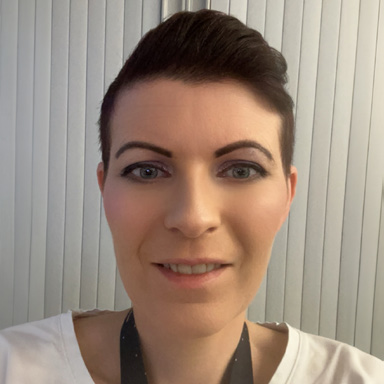
Paediatric Endocrine Specialist Nurse, Royal Belfast Hospital for Sick Children, Northern Ireland
Karen Thompson has been working in Paediatric Endocrinology for 3 years in the Royal Belfast Hospital for Sick Children (RBHSC) in the UK. She provides holistic, person-centred care to children, young people and their families with endocrine conditions. Karen began her nursing career 14 years ago at the RBHSC in anaesthetic and perioperative care before moving to paediatric intensive care. She has completed additional training in anaesthetics and paediatric endocrinology at Masters level and has been able to present at both local and national levels. She is currently studying for Non-Medical Prescribing. “My passion is caring for children, young people and their families. I am also focused on teaching and education, both with our children and families but also with other health professionals”.
AIMS AND LEARNING OBJECTIVES
SESSION 1. ADRENAL DISORDERS
SESSION OVERVIEW
This session will begin with an overview of the functions of the adrenal glands and the roles of the hormones produced by the adrenal cortex and medulla, before moving onto the disorders caused by excess and inadequate levels of these hormones. Nurse case studies on adrenal hyperfunction and hypofunction will further illustrate these conditions and the session will end with a presentation on the management of sick days in children with adrenal insufficiency.
Learning objectives
At the end of the session, delegates will be able to:
- Understand the important functions of the adrenal glands
- Understand how adrenal disorders can cause hyperfunction or hypofunction
- Know which adrenal disorders are common and which are rare
- Understand the basic causes of congenital adrenal hyperplasia and its treatment
- Understand the basic steroid replacement rules for management of the sick child
SESSION 2. GROWTH AND GROWTH HORMONE
SESSION OVERVIEW
Over this afternoon, the topics of growth assessment and management of the child on growth hormone (GH) therapy will be discussed. A plan for the approach to short stature assessment using clinical skills, endocrine assessment and genetic studies will be presented. This will be followed by two presentations by nurses: a keynote lecture and a case study. Both of these will look at the holistic management of the patient given GH therapy, including the use of digital innovations in nursing care to support management and improve adherence to treatment, and an individual patient’s journey from referral to therapeutic outcome, identifying key stages and challenges in the GH therapy journey.
Learning objectives
After this session, delegates will be able to:
- Understand a balanced approach to the investigation of short stature
- Understand the journey of the child on GH therapy, including the possibility of treatment with long-acting growth hormone therapy
- Be familiar with digital innovations in nursing care
- Recognise key challenges at different stages of the GH therapy journey
SESSION 3. PITUITARY DISORDERS
SESSION OVERVIEW
The final session will open with a presentation on the causes and effects of congenital and acquired hypothalamic–pituitary–gonadal axis disorders in children. This will be followed by a review of the use of hormone replacement therapy for patients with deficiencies in thyroid-stimulating hormone, gonadotrophin, adrenocorticotropic hormone and other pituitary hormones, and two nurse case studies of patients with related disorders.
Learning objectives
After this session, delegates will be able to:
- Understand what the most important pituitary disorders are causing pituitary hormone deficiency
- Understand which disorders are congenital or caused by acquired defects
- Understand the need for pituitary hormone replacement
- Be familiar with pituitary hormone replacement regimens

